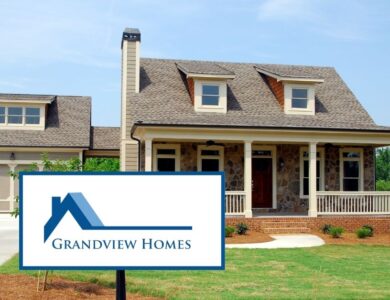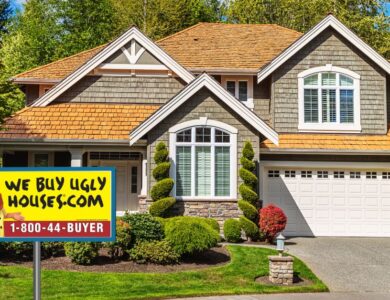Cost to Build a House Utah: A Ultimate Guide for 2024

The average cost to build a house in Utah is $144.28 per square foot. So a 2,000 square foot home would cost around $288,560. Total prices range from $230,000 to $500,000 depending on factors like location, property type, materials, labour, permits, and contractor rates. New custom home construction takes 9 to 12 months to complete on average.
Key Takeaways
- Average cost to build a house in Utah is ranges $140 to $200 per square foot
- For a 2,000 square foot home, expect to pay around $288,000
- Total costs range from $230,000 to $500,000+ depending on size, location and finishes
- Key factors impacting Utah home building costs include land prices, materials, labor, location and additional finishes
- Plan for builds to take 9-12 months depending on scale and any delays
Typical New House Construction Cost in Utah
Based on recent self-reported cost data to build a single family home in Utah, the typical total spend ranges from $220,000 to $500,000+ depending on the finished square footage, number of levels, materials used, additional features and more.
The median price for new construction is approximately $145 per square foot. So if building a 2,000 square foot home, you could expect to pay around $288,560 for an “average” new build in Utah.
Of course, this median rate per square foot encompasses all different levels of finishes. Entry-level finishes may come in under $100 per square foot, while luxury custom builds often exceed $200.
Below is a rough estimate of total new build costs based on square footage:
| Square Footage | Average Cost Ranges |
|---|---|
| 500 sq ft | $72,000 – $100,000 |
| 1000 sq ft | $144,000 – $200,000 |
| 1500 sq ft | $216,000 – $300,000 |
| 2000 sq ft | $230,000 – $500,000 |
| 2500 sq ft | $360,000 – $550,000 |
| 3000 sq ft | $432,000 – $600,000 |
| 3500 sq ft | $504,000 – $700,000 |
| 4000 sq ft | $576,000 – $800,000 |
| 4500 sq ft | $648,000 – $900,000 |
| 5000 sq ft | $720,000 – $1,000,000 |
Here’s an overview of the per square foot construction costs seen across various Utah regions:
- Salt Lake City metro – $110-$275 per sq. ft.
- Ogden/Clearfield metro – $100-$225 per sq. ft.
- Provo/Orem metro – $110-$250 per sq. ft.
- St. George metro – $140-$280 per sq. ft.
- Cedar City – $100-200 per sq. ft.
- Eden – $120-$250 per sq. ft.
- Vernal – $110-$275 per sq. ft.
Also read: Cost to Build a House in Massachusetts
House Building Expenses Across States in US
| State | Average Amount |
|---|---|
| Utah | $288,560 |
| Massachusetts | $350,820 |
| Minnesota | $236,980 |
| Pennsylvania | $270,000 |
| Wisconsin | $424,000 |
| Oklahoma | $260,000 |
| Washington | $343,100 |
| Alabama | $267,620 |
| Colorado | $299,300 |
| Alaska | $421,080 |
| Arizona | $295,580 |
| Arkansas | $251,800 |
| California | $405,440 |
| Connecticut | $345,440 |
| Delaware | $327,060 |
| Florida | $263,640 |
| Georgia | $273,860 |
| Hawaii | $412,840 |
| Idaho | $315,520 |
| Illinois | $265,440 |
| Montana | $298,960 |
| Nebraska | $210,900 |
| Nevada | $334,140 |
| New Jersey | $376,900 |
| New York | $360,180 |
| North Carolina | $301,500 |
| North Dakota | $212,500 |
| Ohio | $222,480 |
Breakdown of Typical Building Costs
Constructing a single-family house in Utah generally involves the following key cost components:
- Land Acquisition – Buying property for a custom home build typically starts around $30,000, ranging from $15,000 for a basic rural lot up to $100,000 or more for larger acreage near parks and ski resorts.
- Permits & Fees– All totaled, required building permits, impact fees, and other expenses can cost $15,000 to $30,000.
- Site Work – For grading, excavation, utilities, site prep etc., budget $5,000 to $25,000 or more.
- Foundation & Framing – These essential structural components average $20,000 to $50,000 total.
- Exterior Finishes – Siding, roofing, windows, insulation, and waterproofing runs $35,000 to $100,000 typically.
- Interior Finishes – Drywalling, flooring, painting and more cost approximately $40,000 to $100,000 depending on materials used.
- Mechanical Systems – Plumbing, HVAC, electrical averages around $40,000 to $70,000 for a typical Utah custom residence.
- Appliances & Fixtures– Budget $10,000 to $50,000+ for high-efficiency washer/dryers, deluxe kitchen sets, spa-like bathrooms, whole-house audiovisual systems etc.
With all required components totaled up, you can expect your final invoice to be anywhere from $215,000 on the very low-end ranging up to $500,000+ for large luxury residences. The average cost to build most Utah custom homes falls around $275,000 to $325,000.
Also read: Cost to Build a House in Washington State
Additional Utah Home Building Cost Factors
While we’ve explored the major inputs impacting new construction pricing, below are some secondary considerations that bump total budgets:
- Steep lot topography – Building on sloped land costs $5-$15+ more per square foot over flat lots.
- Garages/outbuildings – Triple car garages run $35,000+. Shops, sheds, pool cabanas all add substantial costs as well.
- Lot clearing/demolition – Removing structures or trees prior to new construction tacks on $10,000+.
- Septic systems – Home not connected to municipal sewer require private septic investment averaging $20,000.
- Landscaping/hardscaping – Decking, retaining walls, backyard turf and planting boosts total over base grade allowance.
- Architectural design fees – Specialized luxury home plans cost $20,000 or more depending on detail and customization.
- Construction loan financing – Builders factor roughly $30,000 in loan interest and transaction costs into sales pricing.
- Utility connections – Power, gas, water, sewer and communications infrastructure connections average $10,000 per house.
Factors That Determine Cost
The exact cost to build a custom home in Utah can vary dramatically depending on these key factors:
- Location – Prices are higher in metro areas like Salt Lake City and Park City. Rural lots are much cheaper.
- Property Type – Luxury, multi-level, custom homes cost more than basic single-family dwellings.
- Materials – High-end finishes like stonework, premium appliances increase costs.
- Labor – Construction wages impact overall pricing.
- Permits & Fees – These can add $15,000 to $30,000+ depending on the area.
- Site Conditions – Challenging topography drives excavation, foundation, and labor expenses up.
- Contractor Rates – Get multiple quotes as contractor fees can greatly vary.
Taking the time to properly estimate these cost factors in the early planning stages helps avoid budget surprises down the road.
Also read: Cost to Build a House in Colorado
Ways to Reduce Costs
Here are some tips builders and homeowners use to lower pricing:
- Buy land in an affordable development: Purchasing a lot within a new housing development saves big on land costs and prep work is usually minimized at full scale community builds. Infrastructure like roads and utilities are already complete.
- Use stock home plans: Custom home design is expensive versus picking a stock floor plan that allows builders efficiencies with layouts and construction rhythms. Stock plans still offer personalization options.
- Finish basements post-construction: Leave lower levels unfinished at first for major savings, then complete later as funds allow. This also aids house appraisal values.
- Supply your own materials: Self-sourcing items cuts retail mark-ups. But make sure your materials comply with the builder’s requirements.
- Use production builders: Large scale builders with hundreds of local projects perfect efficient construction and pass savings to clients with lower per square foot pricing.
- Finish work yourself: If willing to do painting, flooring and trim work, huge savings result. Labour costs for finishes equals 30% of many project budgets.
- Go modular: Prefab module assembly keeps pricing lean, while still getting a customized home tailored to your needs built in a factory. This also speeds project timelines.
How Long Does Construction Take
Here are typical phase durations:
- Planning & approvals – 1-3 months
- Excavation & foundation – 1-2 months
- Framing & roofing – 2-3 months
- Exterior finish work – 1-2 months
- Interior finish work – 2-4 months
- Inspections & turn-over – 1-2 months
So while an efficiently run Utah home build could theoretically finish within 5-6 months, homeowners should realistically expect 9-12 months from initial plans to move-in readiness across typical subdivision projects in 2024.
Financing Your Custom Home Build
With total price tags ranging from $220,000 up to half a million dollars or more, financing is essential for most buyers to fund a custom home construction undertaking in Utah.
Below are the most common options Utahns utilize to pay for building a house:
- Construction Loans – Specialized short-term financing used to fund progressive stages of construction draws before converting to a traditional mortgage upon full completion. Require only interest payments during the build phase. However, construction lending guidelines are strict for qualifying borrowers – you’ll need excellent credit and collateral.
- Personal Loans – If you don’t qualify for a full construction loan, personal lending up to $100k using good credit or home equity can help bridge budget gaps. Higher interest rates apply.
- Cash or HELOC Funds – For buyers able to pay the full cost or a large portion of construction expenses without financing, this avoids fees and interest expense. If tapping home equity via a HELOC, closing costs and rates still factor in.
- USDA & VA Loans – For qualifying borrowers building in designated rural areas, producer-affiliated ventures, or veterans/military personnel. Feature zero down payment options, lower credit barriers, subsidised rates – worth exploring!
Aside from the financing strategy used to pay contractors during the build itself, you’ll also need to line up a traditional mortgage if required before moving into the completed home, converting interim construction financing, or paying off funds borrowed from personal loans or HELOCs.
When shopping for mortgages, compare multiple rate quotes to find deals like zero closing costs, discounted points, or free rate locks helping you maximise long-term savings. Prequalification also smooths the post-construction financing transition once your custom build wraps up.
How To Calculate The Cost To Build A House in Utah
With new constructions spanning from basic to luxurious, it’s essential to work through cost implications specific to your planned home. Here are some tips to arrive at a more accurate Utah house building budget:
Consult Various Builders For Quotes
Get quotes from at least 3 preferred custom home builders in your area. This gives cost comparability for modeled plans. Assess experience, specialties and service agreements too when selecting your builder.
Understand Local Permitting Rules
Research county regulations and permitting for your property as these impact designs. For example, height allowances, setback minimums and material rules. Such factors limit or enable plans.
Model Out Plans Thoroughly
Engage an architectural design firm to turn basic floor plan concepts into technical models. Work through layouts, materials, features and styles in detail to provide builders accurate specifications for quoting.
Invest In Land And Site Surveys
Evaluate terrain, soil, connections for utilities and other site factors that dictate foundation plans and drainage needs – adding to budgets. Geological surveys are advisable to uncover conditions requiring management.
Build Contingency Funds Into Budget
It’s almost inevitable for some costs to exceed expectations with custom builds. Protect budgets with 10-15% contingency for incidentals like delayed supply deliveries that hold up workflows.
Running through these key steps will see you gain clarity on the likely total investment required to achieve your dream home vision based on Utah’s construction market.
Is Building a House in Utah Right for Me?
If exploring construction of a new custom residence tailored exactly how you envision in one of Utah’s beautiful communities – strongly consider working with an experienced local home builder. Reputable professionals guide first-timers through the process, avoiding costly missteps ensuring your satisfaction.
While paying to create your dream home from the ground-up does require major upfront investment and patience navigating the process, newly built construction boasts many compelling advantages over buying an older existing house:
- Personalised, custom-crafted design/layouts perfectly suited to your lifestyle
- Latest energy-efficient building methods saving long-term on utility bills
- Modern wiring/plumbing infrastructure and high-end finishes
- Exact neighbourhood/community matching your most-desired criteria
- Pride, comfort, and equity building an ideal living space for yourself/family
Benefits of Building Your Own Home
- Customized design & layout
- Latest energy efficiencies
- Modern infrastructure
- Perfect neighborhood fit
- Pride & equity building
- Unique aesthetic touches
- Ideal space for family
- Control over finishes
- Creative freedom on décor
- Catered to special needs
Building vs. Buying a House: What is The Differences
Building a custom home allows for complete personalization in the design, layout, features, and aesthetic. You can tailor every aspect to suit your family’s needs and lifestyle perfectly. However, constructing a residence is more complex, time-intensive, and costly upfront compared to purchasing an existing home.
Buying an already built house provides move-in readiness usually faster and cheaper than new construction. However, compromises on location, floorplans, finishes, and system updates may be required with limited customization potential. Carefully weigh build vs buy options based on budget, lifestyle needs, and willingness to undertake an extensive construction project.
Conclusion
Ultimately, building a custom home is rewarding but requires an intensive year long commitment and greater upfront investment. Buying existing construction costs less but limits customization. Analyse your budget, priorities around location/layouts/finishes, and willingness to navigate a major construction project before deciding to construct your dream home or purchase a ready-residence.
Frequently Asked Questions (FAQ)
In most cases, buying an existing home in Utah is cheaper than building new construction. However, building allows full customization.
In Utah the average cost to build a house is $144.28 per square foot. This means a 2,000 square foot home would cost around $288,560. Total prices range from $230,000 to $500,000 depending on factors like location, property type, materials, labour, permits, and contractor rates.
The average cost to build a house in Utah is $144.28 per square foot. This means a 3,000 square foot home would cost $432,840. Total prices range from $300,000 to $600,000 depending on factors like location, property type, materials, labour, permits, and contractor rates.
The average home price in Utah is currently around $560,000, with averages of $988,000 in Park City and $374,000 in Salt Lake City.
Yes, you can act as an owner-builder to legally construct your own home in Utah if you get the required permits and pass inspections.
To build a custom home in the Park City area expect to pay at least $300 per square foot, with luxury homes costing $800+ per square foot.
No, construction costs in Utah are not generally considered cheap, averaging between $144-$250 per square foot, with additional land, permit, labour expenses.
Due to rapid population growth and increased demand, Utah has seen one of the greatest home price surges nationwide, with costs escalating quickly above national averages.




